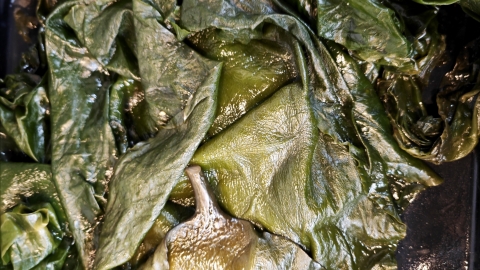Can patients with Hashimoto's hypothyroidism eat kelp?
Generally, patients with Hashimoto's hypothyroidism can consume kelp but should do so in moderation. Detailed explanations are as follows:

Hashimoto's hypothyroidism refers to hypothyroidism caused by Hashimoto's thyroiditis. In this condition, appropriate intake of iodine-rich foods is acceptable since iodine is an essential element for synthesizing thyroid hormones. Kelp is rich in iodine, and moderate consumption can aid in the synthesis of thyroid hormones. When consuming kelp or other iodine-containing foods, patients should consider their individual conditions and follow medical advice, while regularly monitoring thyroid function indicators.
Patients with Hashimoto's hypothyroidism can consume kelp in moderation but should avoid excessive intake. Excessive iodine intake may have adverse effects on the thyroid gland, especially in patients with iodine sensitivity. In addition to kelp, patients can also moderately consume other iodine-rich foods such as nori, sea fish, shrimp, etc. At the same time, they should maintain a balanced diet, consuming more foods rich in protein, vitamins, and dietary fiber.
Patients with Hashimoto's hypothyroidism should follow medical advice to regularly take medications such as levothyroxine sodium tablets and thyroid extract tablets, and undergo regular follow-up tests of thyroid function to adjust the treatment plan promptly.




